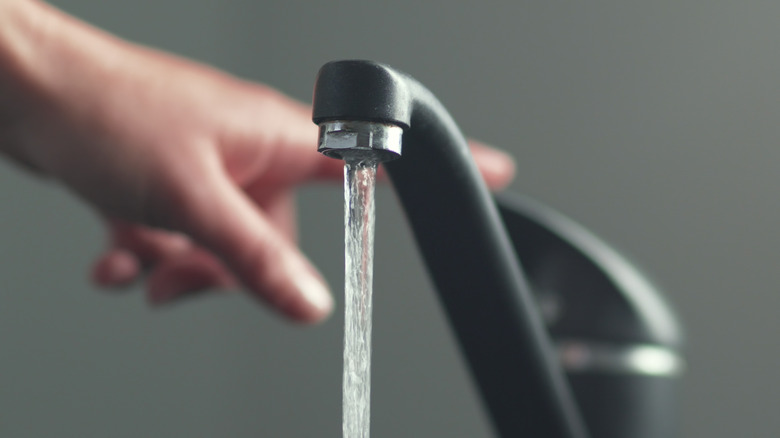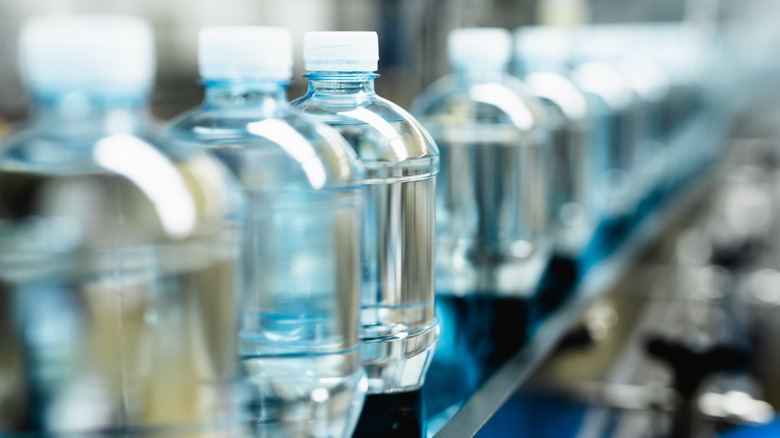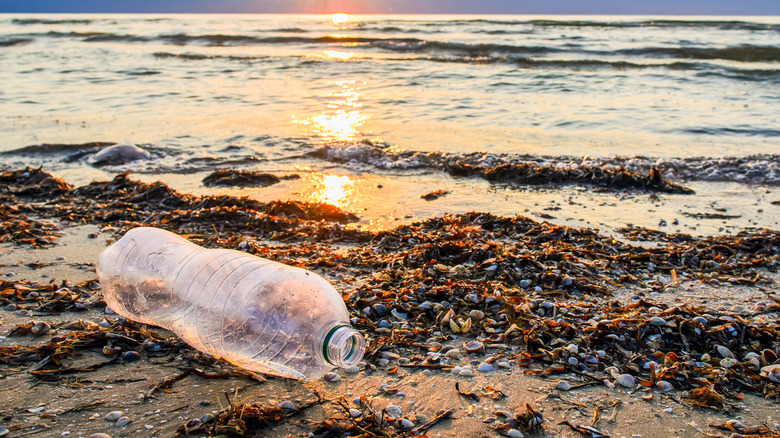Bottled Water Vs Tap: Is There A Nutritional Difference?
In July, the Associated Press shared the findings of an audit into the drinking water of California. Over 900,000 Californians had tap water that was unsafe to drink. Put another way, 5% of the water that is served to 39 million people contains nitrates, arsenic, or some other contaminant. A large part of the issue was that the State Water Resources Control Board, which provides grants to build treatment centers, takes almost three years to process applications, provide funds to communities drinking tainted water, and check in on the construction of these facilities at too distant intervals.
In short, although it's often safe to drink tap water, it is also possible for it to be contaminated. Fortunately, the Environmental Working Group maintains a zip code-based database on water quality throughout the country. If you are especially worried, companies like Discount Filter Store offer water testing kits. However, all this could prove too much work or uncertainty for people. After all, they could simply buy a bottle of water. But is the water in a Dasani really all that different from the stuff that comes out of the nearest faucet?
Bottled water is not necessarily better
Before filling your living space with crates upon crates of bottled water, however, it should be noted that bottled water is not much healthier and has a worse environmental impact. True, U.S. News did learn from Cathy Leman, a registered dietitian nutritionist, that some bottled water is treated to contain electrolytes, amino acids, and nutrients you would not necessarily find in tap water. However, as stated in the FDA's regulations, bottled water could also simply be tap water bottled with plastic. "Some bottled water also comes from municipal sources — in other words, public drinking water or tap water," the agency writes. The FDA is fine with this because such water is typically subjected to treatments like distillation, reverse osmosis, filtration, and ozonation. In that case, though, there is no nutritional difference between the two.
In some ways, bottled water may even be more harmful than tap water. Although it's mostly safe to drink from plastic bottles, Healthline indicates that these containers have the potential to fill you with microplastics, small pieces of plastic that cause health issues when they build up in your intestines. These contaminate the water because bottled water is often bottled in plastic. Worse, Consumer Reports states that bottled water companies only receive voluntary guidelines from the FDA when it comes to PFAS levels. Bottled water can be more mildly nutritious, but it isn't necessarily so. In short, they're essentially the same. If you want nutritious water, Walmart sells vitamin mixes for water.
All things equal, there's an environmental concern
So, despite the possibility that tap water could be hazardous, bottled water companies aren't exactly perfect either. There also remains the issue that bottled water companies essentially create an environmental problem for the sake of a convenience offered by a thermos.
Harvard University lays out every issue that arises from bottled water. It takes 17 million barrels of oil to produce enough plastic bottles to satiate the United States for one year, and 86% of those bottles end up in landfills. Moreover, because someone has to produce the bottles, transport the bottles, and sell the bottles, bottled water is incomparably more expensive than tap water.
Interestingly, a team at the Barcelona Institute for Public Health devised an experiment to calculate what would happen if everyone in Barcelona decided to only drink bottled water. Not only would such a change cost $83.9 million USD, but it would also eliminate 1.43 animal species each year. "Our results show that considering both the environmental and the health effects, tap water is a better option than bottled water because bottled water generates a wider range of impacts," Cathryn Tonne, an environmental epidemiologist at ISGlobal, wrote.


